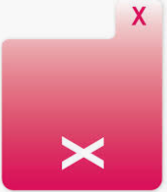I’m starting the 2019/20 Bridge year off with two new courses (click below)
Doubles
The use of “doubles” is part of the arsenal of Modern ACOL Bridge and makes up part of the toolset of “Competative Bidding”
Brian K

After the last positive,”real”, bid has been made , 1C through to 7NT, a person on the opposite side may double. Simplistically this will then mean that if the contract is defeated then the penalties will be higher.
Conversely if the contract is made then the scores for the side making the contract will be higher.
Historically, this “simple” use of Double was for penalties only. Modern day Bridge uses the double , at lower levels mainly, to signify other things.
Modern ACOL :-
1. PENALTY DOUBLE
- The opposition has bid No Trumps and the doubler has 15+ or more points
- If the opposition have bid progressively to the 3 level , and then doubled, this is for penalties
- Any double over the 3 level is for penalties
The next use of “double” can be said to show:-
“Partner, the opposition has taken my bid, please take some action”
2. TAKE OUT DOUBLE
The opposition have opened , say 1D , and you have 12 points or more and are short in Diamonds. You can then double , this tells your partner – “Partner I have opening points and will play in any suit other than Diamonds , please call back your longest and strongest suit”.
Double Responses
| HCP | Response to Double |
|---|---|
| 0 - 8 | Respond at the lowest level possible (even with zero) |
| 9-12 | Jump respond |
| 13+ | Cue bid their suit |
| 13+ | 3NT |
| 10-12 | 2NT |
| 6 - 9 | 1NT |
| With a Stopper in their suit |
N.B.
If the opposition opens the bidding by pre-empting (at the 3 or 4 level , a double after this is for take out, ie we have the balance of points and are likely to make game.
3. NEGATIVE DOUBLE
This is also called the “Informative Double” .
If partner has opened say 1D and before you could bid your hearts they bid 1 Spade. It may be that you don’t have 10 points and therefore cannot bid at the two level.
“Your Bid has been pinched !!”.
So by just doubling their bid, you can inform partner that you have a few point to offer
Again it is for takeout and should not be passed, unless the opposition have bid on.
Which Suit to Open
If you are 12-14 and Balanced then you should be opening 1NT – Check later
If you are 12-19 HCP , unbalanced then you will open at the 1 level in a suit
Continue reading “Which Suit to Open”